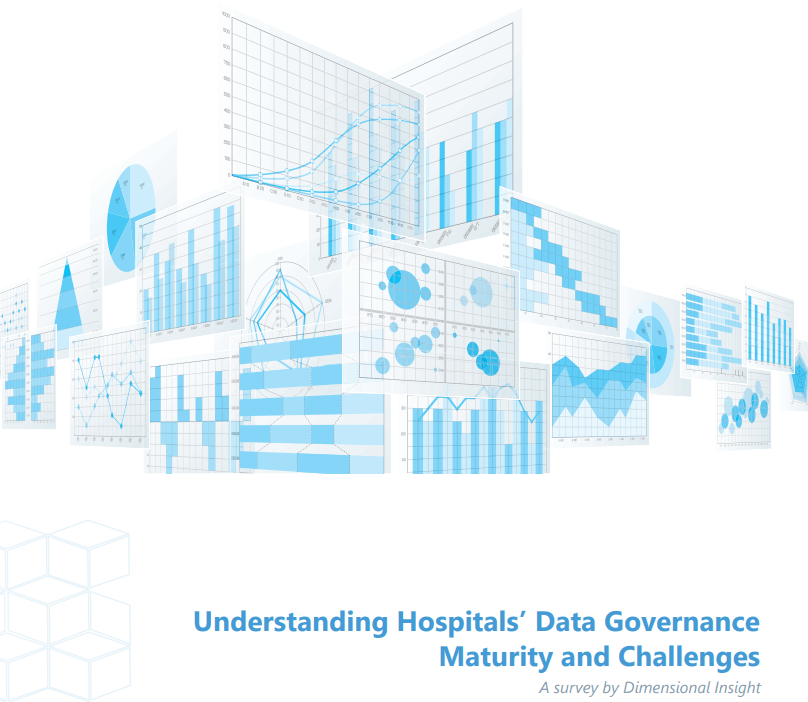
Hospitals are struggling to implement data governance processes or are facing hurdles that impede the initiatives’ effectiveness, according to a recent Dimensional Insight’s survey. Conducted in August 2017, Dimensional Insight surveyed 104 CIOs and CMIOs about their maturity level and challenges associated with data governance efforts.
The survey reveals that while 44 percent of respondents said they had implemented an enterprise-wide data governance capability at their organization, the remaining 56 percent said they had incomplete or non-existent enterprise-wide governance processes in place, or they were unaware of what their organizations have implemented. When asked about their future plans, nearly half (49 percent) of respondents plan to adopt data governance in the next year, followed by 29 percent in the next three years.
Other key findings of the survey report include:
Key Drivers for Data Governance Adoption
Two-thirds of respondents (68 percent) agreed that the most common reason was to improve trust in their organization’s data. Additional top drivers included:
– Improving care quality (60 percent)
– Improving regulatory compliance (45 percent)
– Improving patient safety (41 percent)
– Managing organizational care costs (31 percent)
– Managing new payment models (21 percent)
Challenges for Data Governance Initiatives
70 percent of respondents noted that a lack of resources has stalled the adoption process at their organizations, where more than half (57 percent) of those who have adopted the capability noted limited resources as the biggest challenge they faced during the roll-out. Other challenges associated with implementing enterprise-wide data governance include: variance in leadership buy-in (50 percent), discrepancy in defining data measurements (49 percent), interdepartmental conflict (37 percent), lengthy implementation time (31 percent), and additional costs associated (29 percent).
Work in Progress for Data Measures and Definitions
Governing measures in the data governance process can be difficult for hospitals, as there are often discrepancies that exist. The survey reveals more than two-thirds of respondents (71 percent) said they have experienced discrepancies between measures across organizational departments (e.g. clinical vs. financial).
About half of all respondents also noted they have discrepancies across clinical departments, discrepancies with organizational definitions vs. industry definitions, and discrepancies in understanding of previously existing business rules.
“As the amount of data continues to grow, and as healthcare organizations recognize the need to make better use of data, having an effective data governance strategy in place is more important than ever,” said Fred Powers, co-founder and CEO of Dimensional Insight in a statement. “However, as indicated in our survey, there is still a need to make the governance process easier for everyone involved so that data is consistent, well-documented and trustworthy. The time is now to make that a reality for healthcare.”
For more information on the survey, click here.
